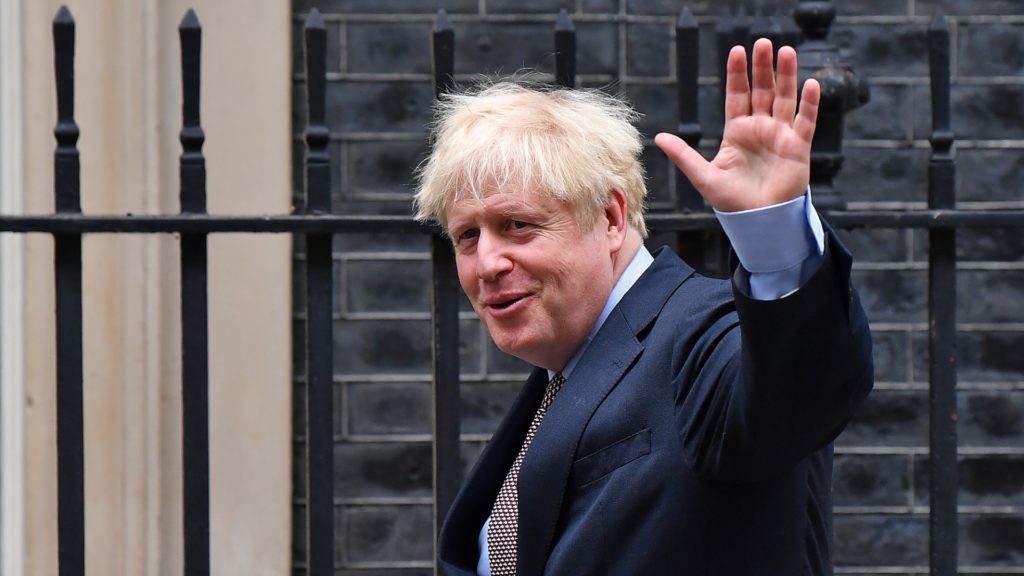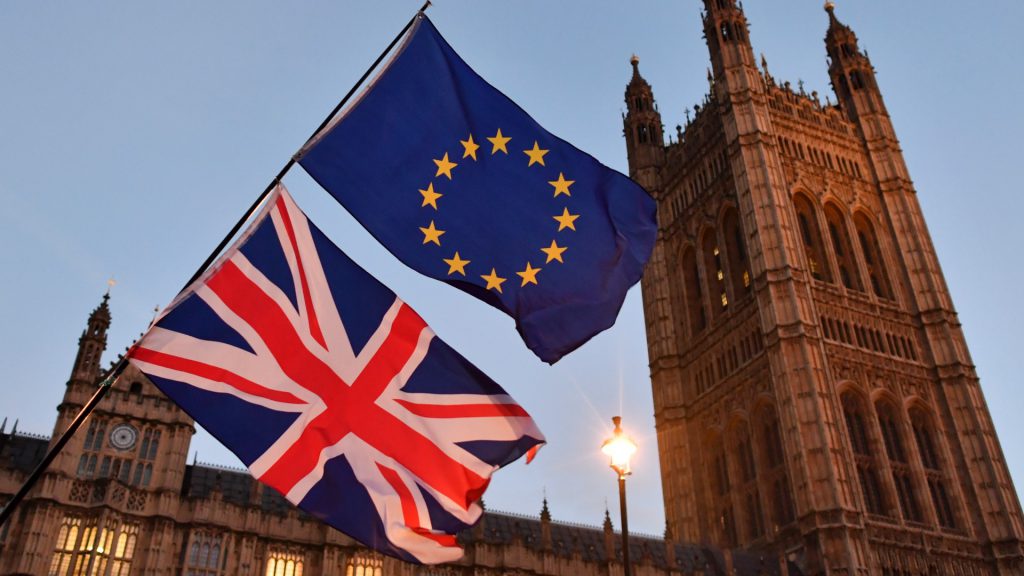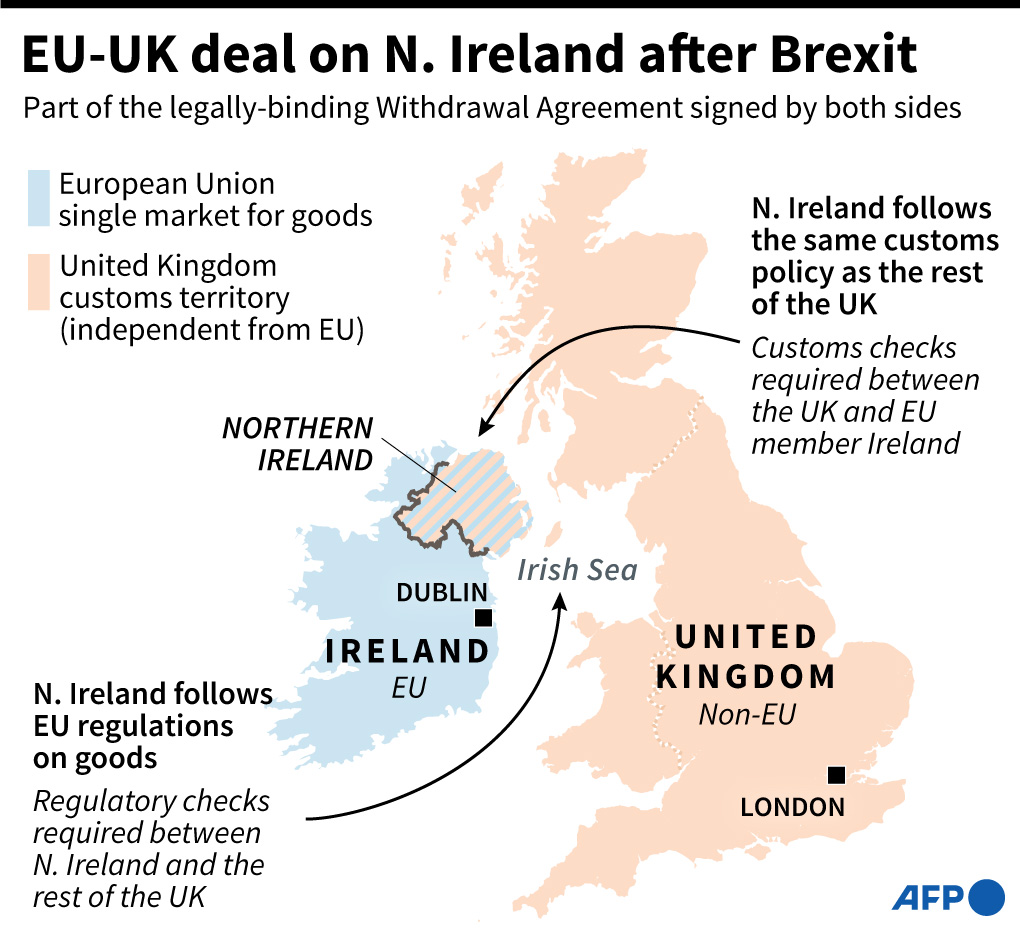UK’s controversial new Brexit powers law explained

The UK government is set for showdown talks with the European Union on Thursday after unveiling a new bill that will override parts of the divorce deal it signed with the bloc last year.
What is it?
The UK Internal Market Bill sets out how the government will redistribute powers set to return from Brussels at the end of the year.
The country formally left the EU on January 31 but remains bound by the bloc’s rules until December 31, as both sides negotiate the terms of their future relationship.
Regardless of whether a new trade deal is struck, a multitude of powers accrued by the EU over decades in a slew of policy areas will be handed back to London on January 1, 2021.
Prime Minister Boris Johnson’s government says it needs to legislate how this will happen within the UK’s four nations — England, Scotland, Wales and Northern Ireland — to “guarantee companies can trade unhindered in every part of the UK”.

– What’s the problem? –
The government has admitted the proposed legislation will break international law “in a very specific and limited way” by overriding commitments made in the Withdrawal Agreement it signed with the EU that allowed it to leave the bloc.
The UK-EU deal, ratified by both sides and enforceable in law as an international treaty, created a so-called joint committee to resolve any potential disputes by mutual consent.
>>> READ ALSO – Aviation, autos and other virus victims
This was seen as key in relation to Northern Ireland, which has its own protocol in the deal designed to keep its border with EU member Ireland open and unrestricted.
There are fears Brexit could create cross-border barriers such as the return of customs checks and infrastructure — going against a key provision of a 1998 peace deal that ended three decades of violence over British rule.
The new bill, if passed, would allow UK ministers to sideline the joint committee in some circumstances and decide unilaterally on some matters related to British trade with Northern Ireland and the impact of state aid there.

What’s the UK position?
Johnson says the legislation is needed “to uphold the integrity of the UK but also to protect the Northern Irish peace process”.
It would provide “a legal safety net to protect our country against extreme or irrational interpretations of the protocol”, that could lead to a border between mainland Britain (England, Scotland and Wales) and Northern Ireland.
>>> READ ALSO – Eurozone inflation falls into negative territory, unemployment rises
Ministers argue the bill will give powers in various policy areas to the devolved governments in Edinburgh, Cardiff and Belfast for the first time.
They claim it will avoid uncertainty for business by creating “an open, fair, and competitive market across the United Kingdom, ensuring regulations from one part of the country will be recognised in another”.

What was the reaction?
The EU has warned Britain it must abide by all aspects of the Withdrawal Agreement, and voiced concern that it is openly prepared to breach the deal and international law.
Ireland has warned it could derail the already stalled efforts to agree a UK-EU trade deal.

Leaders in the Scottish Parliament and Welsh Assembly say that rather than repatriating decision-making to them, the bill amounts to a power-grab by London.
The main opposition Labour Party, keen to capitalise on the row, reminded Johnson of his 2019 election commitment to “get Brexit done” and not to renege on his commitments.
Britain’s troubled relationship with the EU
Source: ednHUB / Agence France-Presse